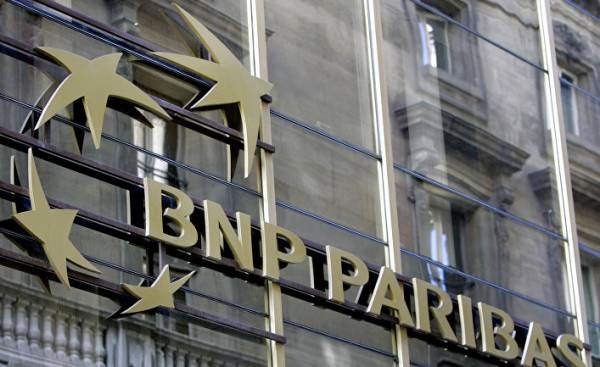
Les Echos: the budget is little or even not raised in the current campaign. It doesn’t bother you?
Michelle perero (Michel Pébereau): This has not happened. In 2007 this topic was Central in the election campaign, and in 2012, talked about it, both main candidates. They promised to restore the balance of public finances at the end of his presidential term. Today, it’s amazing to see that the fact that our deficit will be longer than expected to be at the level of above 3% of GDP, is barely discussed, despite warnings from the High Council on public finances and the constitutional Council, as well as the stagnation of growth at around 1.1%.
In 2017 France may be the only European country with a deficit above standing rules. The situation is alarming. Public opinion is not aware that we are talking about the most important issue that must be urgently addressed.
— What diagnosis you would put the public finances?
— Our national debt reached 100% of GDP against 20% in 1980. Inflate his endless budget deficits since 1981. What is the cause? A permanent increase in government spending, which today account for 57% of GDP, which is 13 points higher than in Germany! The average gap in these expenditures between France and comparable in importance to European countries (Germany, UK, Italy, Spain) increased from 8.5% of GDP in 2010 to 11.5% in 2014…
For this, we increased mandatory fees up to 45% of GDP, which is the highest rate across the European Union, 7 points above average. It was a blow for the competitiveness of our companies and our country, for employment. Recent events have shown that our willingness to put up with taxes had reached the limit. And because of the excess costs, the deficit remained.
Our debt continued to grow. This cannot continue indefinitely. We need the confidence of creditors for endless refinancing of debt on favorable terms. To save it, you need to show that we intend to deal decisively with the deficit. In addition, we have signed this European agreement.
— What do you suggest?
— Review all expenses for their reduction and reorientation in the service of economic growth and social cohesion. We recommend you to bring them to 50% of GDP over five years, which is still above the European average. But it is a condition of reduction of deductions that hurt our competitiveness. UK, Ireland, Spain and Germany have shown in the past that reducing these costs becomes a source of economic growth in the medium term.
But in the debate a reference to the IMF, which require the EU budget rise to support monetary policy…
— From Europe, not from France! In the Eurozone there is a large surplus in current balance due to Germany (8% GDP) and most of our partners. Thus in our balance of payments formed negative balance of 1% of GDP for the budget deficit. Our private sector (families and businesses) has the capacity to Finance, but not enough to cover the deficit. In other words, we resort to foreign borrowing to maintain our lifestyle.
The IMF is right that the Eurozone and especially Germany have the opportunity to spend more. But he never said that the only major country in the area with a balance of payments deficit need even more to deepen it.
— You have sounded the alarm on the debt in 2005, and this account has been obligated. Why not work out?
— Public opinion has paid much attention to the unanimous message led me to the Commission, which brought together 20 people from different circles. Press everything well lit. Institute of enterprises surveyed candidates in the 2007 elections on the value of their offerings. And after the vote was started a General analysis of public policy.
Unfortunately, in August 2007 the financial crisis began, and at the end of 2008, “twenty” decided on Keynesian demand stimulation to combat the economic crisis. Government spending and the deficit has grown significantly in 2009-2010. Our country has started a programme of investment in the future.
— Where to start in reducing government spending?
— We need to review all expenses to achieve a rational reduction. Action must be immediate, comprehensive and long-lasting. The first measures and targets to reduce in the medium term must be declared during the election campaign. The concepts of efficiency and equity suggest its distribution among all government departments. The work of the accounts chamber, General inspection and commissioners of public services opens up many avenues for reform.
A state which is in deficit for more than 40 years, began its efforts to control costs since 2005. However, a situation where it costs 20% more income for daily expenses, the normal way. It is necessary to change the rates and plans, especially when the reallocation of resources towards security (both internal and external). It is time to move from projects to real structural reforms to reduce current spending through reorganization and the use of the fruits of the digital revolution. All this implies the introduction of this mobility of civil servants. This requires a partial absence of the set of locations that are released after retirement.
— What about local authorities and social security?
— With regard to local government, you need to very seriously reduce a large territorial entities and ongoing costs. Judge for yourself: the number of employees has increased 2.5 times since 1980, that is 1.2 million people.
Since 2002, funding significant and sustained deficit of the social security system is carried out with the help of loans, which creates a serious problem in terms of solvency. We pass on to future generations the debt burden, which only adds to their own costs.
— What can threaten a rate hike?
— Due to ECB rate cuts the debt burden on the budget is about 40 billion euros. It is similar to load 2005, even though the debt has almost doubled. This means that the rates for 2005 (as they then were not too high), the debt burden would have increased by almost 2% of GDP, and deal with it, it would be extremely difficult.
— Do you have the feeling that the markets began to show more anxiety in relation to French debt?
— About 65% of our debt is owned by foreign investors. Their trust in our capital and our willingness to fulfill the obligations required. If the campaign will raise doubts on this score, the gap between interest rates on German and French debt will grow.
This is what happened in 2010-2011 in Italy and Spain. It showed how terrible can be this kind of crisis not only for the countries, which it directly affects, but also for others. We must at all costs not to let this happen to our country. That is why the Institute of enterprises began to sound the alarm.







